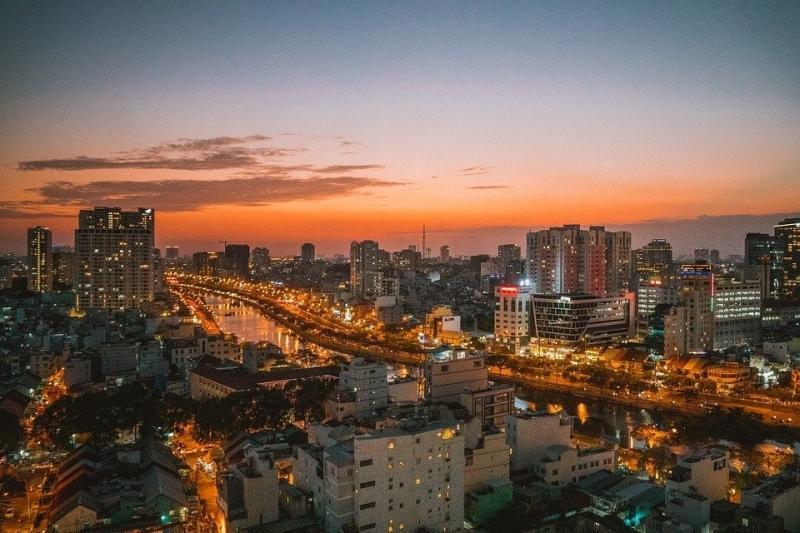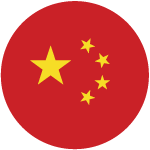

Vietnam is a rapidly developing economy and an attractive destination for many businesses around the world. However, one aspect of doing business in Vietnam that can be challenging is understanding and calculating the import tax.
Import taxes are taxes levied on items brought into Vietnam from other nations. Several variables, including the kind of goods, their cost, and the country of origin, may influence the rate at which import tariff is charged.
To effectively budget for import tax and prevent any potential regulatory complications, it is necessary for businesses trading in Vietnam to comprehend how to compute import tax.
For the most part, this entails collaborating alongside a customs representative or freight forwarder who can offer advice on the import tax procedure and ensure that all required paperwork and payments are made on time.
Overview of Import Duties and Import Licenses in Vietnam
Import duties which refer to taxes imposed on goods are an important aspect of the country’s trade regulations.
These taxes are levied by the Vietnamese government to protect domestic industries and generate revenue for the country.
Import duties can be ad valorem (based on the value of the imported goods), specific (based on a specific quantity or weight of goods), or a combination of both.
In addition to import duties, the Vietnamese government also requires certain types of goods to have import licenses.
These licenses are issued by the government and are required for certain types of goods, such as pharmaceuticals, chemicals, and food products. The purpose of import licenses is to regulate the importation of certain goods and to ensure that they meet specific safety and quality standards.
Importers must comply with all relevant regulations and obtain the necessary licenses and permits before importing goods into Vietnam. Failure to comply with these regulations can result in fines, penalties, and other legal consequences.
Overall, understanding import duties and licenses in Vietnam is crucial for businesses that are looking to import goods into the country. It is important to work with reputable import/export companies or customs brokers who can help navigate complex regulations and ensure compliance with all relevant laws and regulations.
Procedure For Obtaining An Import License In Vietnam
Importing goods into Vietnam requires an import license issued by the relevant Vietnamese government authorities. The following is a general procedure for obtaining an import license in Vietnam:
1. Determine if the product requires an import license
Some products may require specific licenses before they can be imported into Vietnam. To determine if your product requires a license, you can consult the Vietnam Customs website or contact the Ministry of Industry and Trade.
2. Obtain a business license
To import goods into Vietnam, you must have a registered business in Vietnam with a valid business license.
3. Register for an import-export code
You must register for an import-export code (IEC) with the Ministry of Industry and Trade. This code is used to identify your business when importing or exporting goods.
4. Apply to relevant government organizations
You must apply to the appropriate government organization for an import license. Normally, the application will need details about the product’s type, volume, and source.
5. Pay import-related fees
Based on the item being imported, you might be billed for a number of import-related fines and tariffs.
6. Obtain approval
Following the application’s submission and payment of the necessary expenses, you will be notified as to if the request has been granted or declined.
7. Obtain the import license
If your application is accepted, you will be given an import license that enables you to lawfully import the specific commodity into Vietnam.
Taxes Applicable to Imports into Vietnam
There may be applicable taxes and fees when importing commodities to Vietnam. Usually, the Vietnamese government imposes these levies to raise money or shield indigenous sectors from foreign competitors.
The particular taxes that apply to shipments into Vietnam may consist of:
- Import Duty: This is a tax levied on the value of imported products. The nature of products and nation of origin affect the tariff rate.
- Value-added tax (VAT): This tax is levied in addition to import duties and is applied to the value of imported products. Vietnam’s VAT rates for imported goods can be 0%, 5%, or 10%. Certain goods, such as daily necessities that cannot be produced in Vietnam, are exempt from VAT.
- Environmental protection tax (EPT): This tax is levied on goods that are thought to be damaging to human well-being or the surroundings. Goods such as coal, gasoline, plastic bags, etc. are subject to the environmental protection tax.
- Special consumption tax (SCT): This is a tax also known as “the luxury tax” which is levied on products like tobacco, alcohol, automobiles having less than 24 seats, motorcycles of cylinder capacity above 125cm3, air conditioners (under 90,000 BTU), airplanes, massage, karaoke, casino, jackpot games, golf and petroleum products. The SCT rate begins at 1% and exceeds the 100% rate depending on the type of product, the SCT rate changes.
It’s important to note that Vietnam has a number of free trade agreements (FTAs) involving different nations, which could lower or abolish some export and import duties from those nations. However, some taxes and fees may still be necessary even with FTAs.
The formula for Calculating Import Tax Duty in Vietnam
In Vietnam, the following formula is used to determine import tax duties:
Import Tax Duties = Import tax + Value-Added Tax (if any) + Special Consumption Tax (if any) + Environmental Protection Tax (if any)
Special Sales Tax and Environment Protection Tax apply to some products in addition to import duties. VAT will be also applied on all imported goods and services.
Each import tax duty is derived by applying a tax rate to the new value base including import value and all previous tax duties. The sequence for the above taxes comes as: Import tax, Special Consumption Tax, Environmental Protection Tax, Value-Added Tax.
The calculation rate applies to both the import tax duty and the value-added tax, which are assessed on imported goods in Vietnam, and are taken into consideration in the formula.
Exemptions from Import Tax in Vietnam
Vietnam renders special import tax deductions for the following:
- Items brought in under particular conditions
- Imported goods for private purposes
- Supplies for producing export products
- Goods imported for further processing and processed exports
- Goods temporarily imported for re-exports within a certain period of time.
- Goods traded among borders residents
- Supplies that cannot be domestically produced
- Non-commercial goods (samples; advertisement publications in small quantities)
- Projects involving investment are all exempted from this rule.
List of Prohibited Products for Import into Vietnam
There is a list of goods that are not allowed to be imported into Vietnam under any events. And these are some of them
- Weapons
- Banned recordings; i.e tapes/discs
- Explosives
- Hazardous materials
- Illicit substances
- Fake items
- Second-hand items
- Chemicals under the list of banned chemicals.
To safeguard the health of the general population well-being, environmental protection and also combating illicit activity, the import of these products is categorically prohibited. Before bringing any goods into Vietnam, importers should carefully study the list of prohibited items to avoid getting into trouble with the law or facing penalties.
Conclusion
In conclusion, import tax is a crucial aspect of Vietnam’s trade policy and revenue collection. It is pertinent to note that the particular specifications for acquiring an import license in Vietnam may change based on the kind of goods imported and the governmental organization in charge of giving the license.
Overall, understanding Vietnam’s import tax regulations is important for importers to comply with the country’s laws and regulations and to facilitate smooth trade operations.
How We Can Assist You with Your Import Needs in Vietnam
However, it is advised that you seek further advice from a nearby customs broker or legal representative for further guidance. Get in touch with us at Premia TNC to help you get started on your journey to acquiring your import tax for your business needs.



















